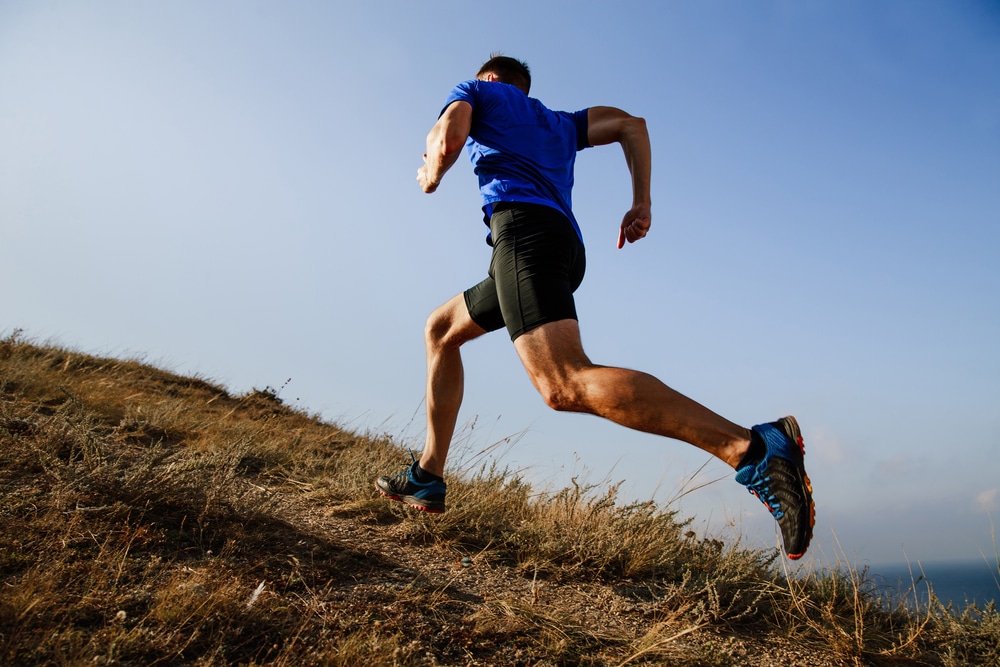Athletes train hard, eat well, stay hydrated, and maintain a healthy weight. So why would they develop varicose veins? Varicose veins typically occur due to weakened valves or increased blood pressure in the veins. They are also often a result of prolonged sitting or standing. They can affect anyone.

For athletes, bulging, ropy, painful veins will not only cause pain and discomfort, they can hinder physical performance and affect stamina. Athletes who are most vulnerable to varicose veins focus on sports that rely on the legs to support additional weight over extended periods of time, like weightlifting, backpacking and skiing. Running, cycling or other repetitive motion activities also increase the amount of stress in the legs and veins.
Certain sports can increase your risk of varicose veins, including:
- Weightlifting: Excessive straining can damage or worsen already damaged vein valves
- Running: Prolonged periods of time upright can cause blood to pool in the lower legs
- Cycling: Prolonged periods of time sitting can cause blood to pool in the lower legs
- Tennis & Pickleball: Short impacts on the legs can damage your vein valves.
- Skiing: Increased intra-abdominal pressure can damage vein valves
- Football: Extreme physical contact can easily damage vein valves or break existing varicose veins.
Signs of Early Varicose Veins
Athletes should be aware of the earliest signs and symptoms of varicose veins. Vein Specialists of Geneva recommends seeking treatment at the first signs of varicose veins, before they start to affect physical performance or stamina.
Typical Symptoms
- Painful, achy or heavy legs
- Mild swelling in the ankles or feet
- Throbbing or cramping in the legs
- Itching sensations in the lower legs
Whether you’re an athlete or not, Vein Specialists of Geneva is ready to help you feel well again and reach your peak physical performance.
Preventive Tips for Athletes
You can protect your vein health without compromising your performance by following these simple preventive measures:
Stretching and Mobility Techniques
Incorporate daily stretching routines focused on your calves, hamstrings, and quads to reduce strain on your vascular system. Yoga or dynamic warm-ups before training help improve circulation and lessen the impact on your veins.
Use of Compression Gear
Compression socks and sleeves support your veins by promoting blood flow and reducing swelling. Wearing them during long runs, flights, or after heavy training sessions can prevent blood pooling in your legs.
Hydration and Leg Elevation Habits
Proper hydration keeps your blood viscosity low, which supports healthy circulation. Elevate your legs after workouts to aid venous return and reduce post-exercise inflammation.
How Varicose Veins Affect Athletic Performance
You may notice a dip in endurance or a slower recovery window if vein disease begins to take root. Varicose veins often lead to aching, heaviness, or throbbing in the legs—symptoms that can sideline your training or reduce stamina. They can also increase soreness after activity and prolong recovery times.
Cosmetically, bulging veins can become an emotional or aesthetic concern, especially in sports where appearance and body confidence matter. For some athletes, this leads to self-consciousness or a reluctance to wear competition or training gear that exposes the legs.
When to See a Vein Specialist
As an athlete, you're tuned into your body. But don’t ignore these signs:
-
Persistent aching or swelling in your legs
-
Bulging veins that worsen after activity
-
Cramping or heaviness during or after training
-
Skin discoloration or itching around the veins
These symptoms can be early warning signs of venous insufficiency. Athletes with a family history of vein disease, or who engage in long hours of standing or intense leg work, should consider seeing a specialist for an evaluation.
Why Choose Vein Specialists of Geneva
At Vein Specialists of Geneva, you receive expert care that’s tailored to your active lifestyle. Whether you're managing symptoms or aiming to prevent future issues, you’ll find compassionate, personalized treatment in a welcoming environment. Conveniently located in Geneva, IL, we offer advanced, minimally invasive treatment options with little downtime—so you can get back to your sport sooner.
Call us at 630-425-0800 to schedule your consultation today.
Contact our office today at (630) 425-0800 to schedule an appointment with Dr. Kern and begin your journey to healthier, pain free legs.
FAQs
What causes varicose veins in otherwise healthy athletes?
High-impact exercise, repetitive strain, and elevated venous pressure during workouts can damage vein valves, even in healthy individuals.
Can I keep training if I have varicose veins?
In many cases, yes. However, modifying your workouts and consulting a vein specialist helps manage symptoms and prevent complications.
Are varicose veins just cosmetic or can they impact performance?
They can affect both. Beyond appearance, they often cause fatigue, pain, and slower recovery—limiting your athletic potential.
What are the early signs of vein problems I should watch for?
Look for heaviness, aching, swelling, cramping, or visible bulging veins, especially if symptoms worsen after exercise.
How long is recovery after vein treatment?
Most treatments have short recovery periods, often just a few days. Athletes can usually resume light activity quickly.
What are the risks of ignoring varicose veins as an athlete?
Neglecting vein issues can lead to worsening symptoms, blood clots, or chronic venous insufficiency, all of which may impair performance and quality of life.

